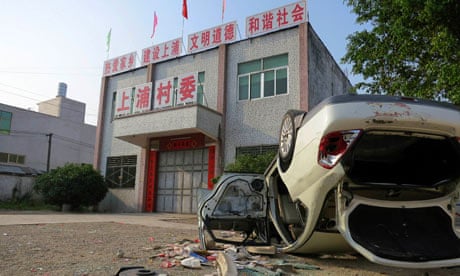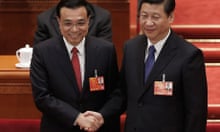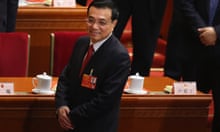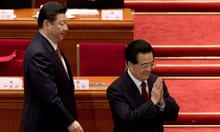Chinese authorities have violently cracked down on an 18-day uprising over landgrabs in a southern Chinese village, arresting nine people and hospitalising dozens.
This weekend, security forces stormed the village of Shangpu, a farming community of 3,000 in southern Guangdong province, cut the electricity supply and phone service, beat demonstrators and fired tear gas into crowds, injuring 30 to 40 people.
According to wire reports and microblog posts, the confrontation between Shangpu residents and the authorities began last month when the village's Communist party chief, Li Baoyu, leased a 33 hectare (81 acre) plot of land to his friend, the owner of an electric cable company, without the villagers' consent.
The authorities have arrested Li and eight other people, reported Agence France-Presse, and are still pursuing another 21, including the company owner. County-level authorities overseeing the village have agreed to nullify the land deal, village authorities told the agency. Two officials have been removed from their posts.
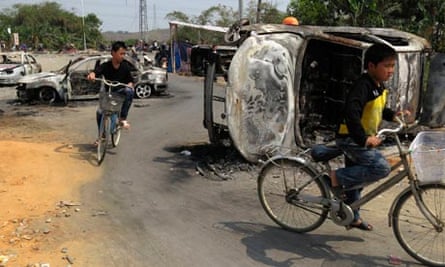
Violent confrontations in Shangpu began late last month when Li sent 30 cars full of hardhat-wearing thugs to threaten protesters with shovels and steel pipes. The villagers chased them away before overturning and setting fire to their vehicles. According to microblog posts, they intended to keep the burnt-out cars as proof of the businessman's wrongdoing.
Early on Sunday, the authorities dispatched police to remove the vehicles, reigniting the simmering protests. About 3,000 security officers and riot police entered the village to combat them.
"They didn't say a thing and started firing teargas and beating villagers with truncheons," a young witness told Reuters. "They had torches on their helmets, like miners, and were hitting some old people with truncheons who were sleeping in tents. They gave no warning."
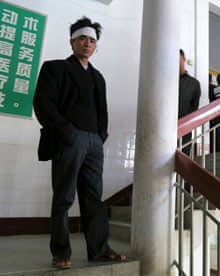
A local woman on Sina Weibo, China's most popular microblog, wrote: "Save us! To take away our cars, the government has been throwing tear gas and nobody in the village can take it. Also they've cut electricity to the whole place, and there's no phone service. Do they not know how many of us 3,000 villagers are old people and children?" Two of her posts were deleted by censors.
Wukan, another farming village in Guangdong province about 60 miles from Shangpu, made international headlines in 2011 when locals revolted over a similar land requisition orchestrated by a corrupt village chief.
Provincial authorities ended the incident by sacking the leader and allowing the villagers to democratically elect his replacement.
Shangpu villagers have demanded elections to replace Li, though the prospect of a similar outcome is still unclear.

In China, all land is state-owned and compensation legislation is vague and imprecise, allowing local authorities to easily requisition broad swaths of farmland and repurpose it for their own political and economic gains. Land disputes involving aggrieved farmers have subsequently become one of the country's leading causes of social unrest.
Tao Ran, an economics professor at Renmin University in Beijing, said that such protests are especially common in parts of Guangdong because of the province's economic imbalances.
"Guangdong is saying OK, the Pearl River Delta is now too crowded, we need to update our industrial structure, so lets shift these industries to the east were there is less economic prosperity," he said.
